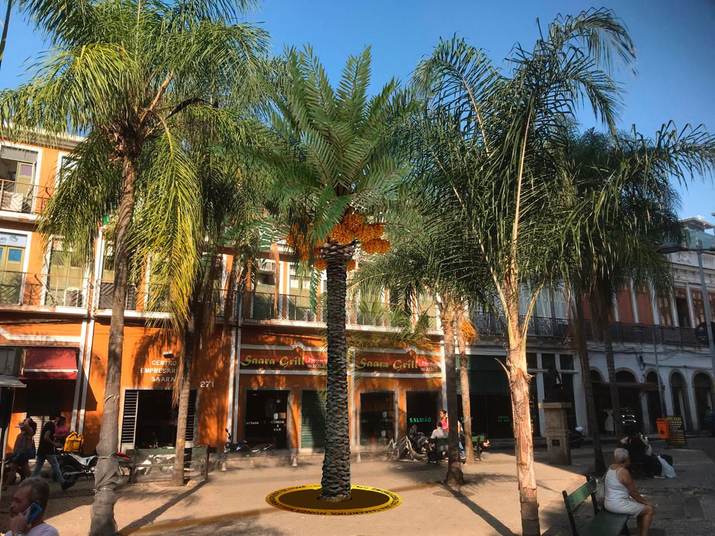Marcos Chaves is part of the group exhibition ‘Make Yourself at Home: Displaced ideas on migration and hos(ti)pitality’, the result of a South-South multicultural exchange that has been taking place since 2017, mainly between Lebanon and Brazil. The project takes a look at the concept of hospitality and the tensions in guest-host relationships from the point of view of historical and contemporary modes of migration specific to these two South’s global contexts, resonating with broader xenophobic global practices in relation to the “other” that it is not just the refugee or migrant.
The exhibition features works by nineteen international artists and collectives, including site-specific works commissioned for public spaces in the city of Rio de Janeiro. The works deal with the theme of migration, understood as a form of movement, displacement, flow, occupation, or voluntary or forced transfer of people, species, and other animated or inanimate bodies and materials, revealing apparent or interpretive tensions in hospitality, which can be interpreted in different ways, such as formal, conceptual or discursive.
Commissioned for this exhibition, Chaves’ public art intervention consisted of planting a “migrant” date palm, a strong symbol of generosity and fertility, in Praça do Mascate amongst already-existing local palm trees. Praça do Mascate is located in SAARA, an area of Rio de Janeiro where many immigrants from the Middle East settled at the beginning of the 20th century.
On the ground, around the trunk of the date palm, a plaque is installed inscribed with a sentence in Portuguese, English and Arabic. The three sentences craftily play on the words used in the different languages. In English, “Let’s have a date in SAARA?”, the word “date” refers to a social or romantic meeting, but can be mistaken for the fruit that the date palm bears, hence the translation to Portuguese which means “Let’s eat a date in SAARA”. SAARA, again refers to the market in central Rio, but can be interpreted as the Sahara desert, hence the translation in Arabic to “Let’s meet in the desert”, humorously reflecting typical mistakes which can be made by beginners in a foreign language. Also at Paço Imperial, the public can find a smaller sample equal to the one that will be installed under the date palm in SAARA.
Chaves also collaborated with Rádio SAARA on a public sound intervention, in which he compiled and recorded phrases and proverbs in his own voice. These were broadcast on the radio through the streets of SAARA and for the length of the exhibition.
The ways in which this project has enabled permeability and transformation as answers to current political issues, social needs, and pressing issues related to hospitality is a curatorial experiment that positions the exhibition itself as host and guest in relation to the context in which It's happening.
